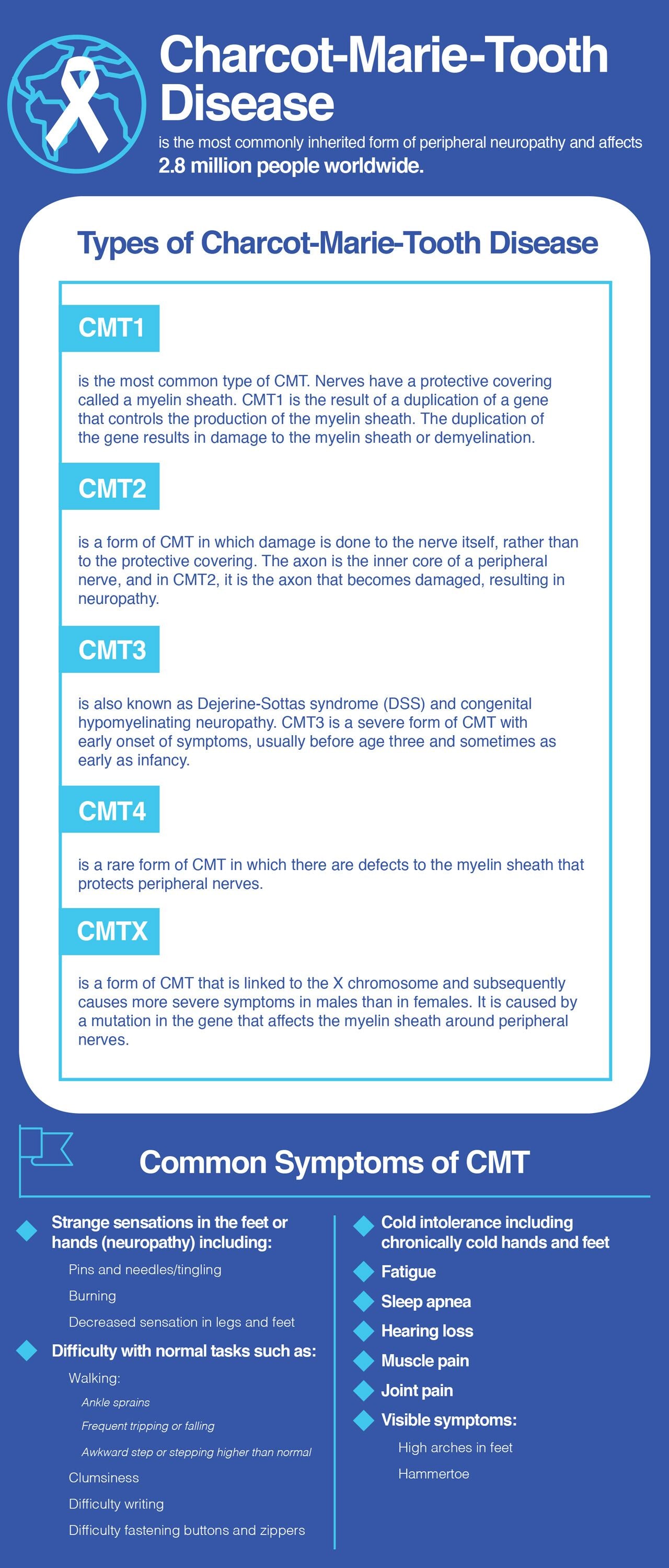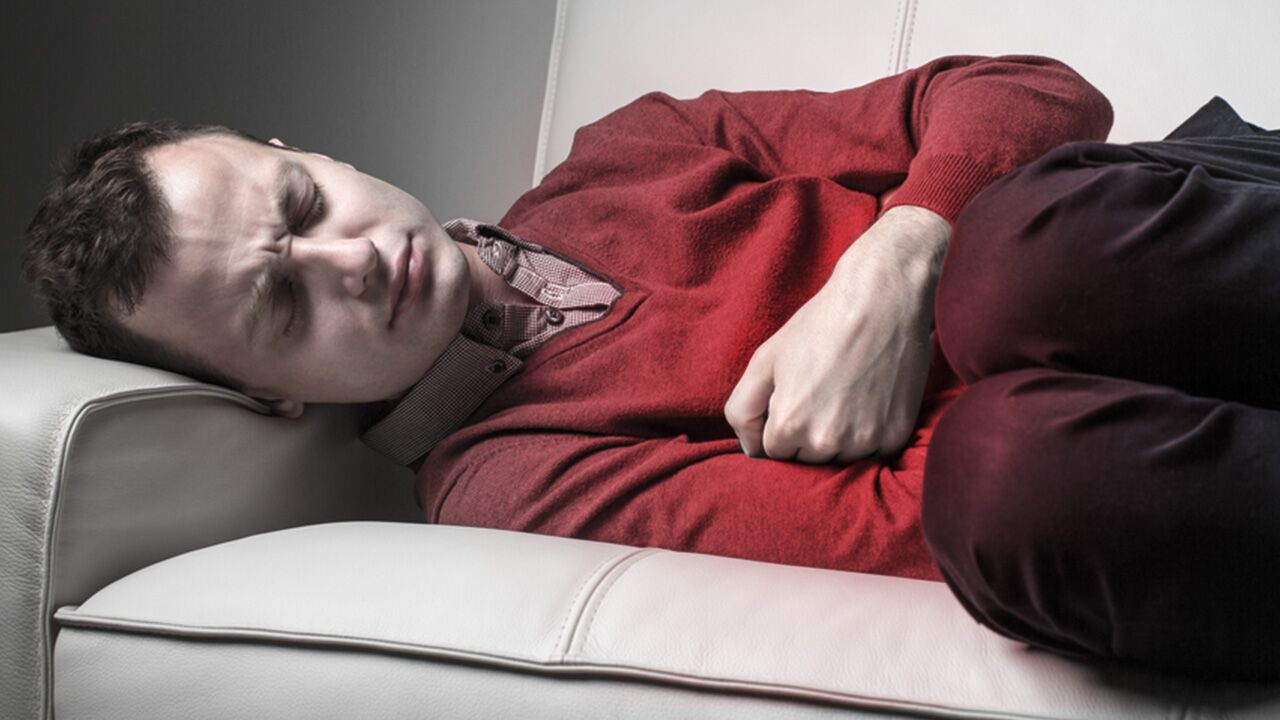Charcot-Marie-Tooth Disease: Facts on Symptoms, Causes And Treatment
 By: by Amino Science
By: by Amino Science

Don’t let the name mislead you. Charcot-Marie-Tooth disease has nothing to do with dental health. It’s a neurological disorder of the peripheral nervous system that affects the sensory and motor nerves. French physicians Jean-Martin Charcot and Pierre Marie and British physician Howard Henry Tooth were the first three physicians to describe this disease, which can cause muscle weakness and strange sensations in the hands, arms, feet, and legs. The disease was named after the physicians in 1886. It does go by other names, however: hereditary motor and sensory neuropathy (HMSN) and peroneal muscular atrophy.
At this point, you’ve probably got questions like:
- What exactly is Charcot-Marie-Tooth disease and what causes it?
- What is the peripheral nervous system?
- How do I know if I’m at risk?
Not to worry. We’re here to answer these questions as well as explain the symptoms and treatments for this mysterious disease.
What Is Charcot-Marie-Tooth Disease?
Charcot-Marie-Tooth Disease (CMT), sometimes shortened to just Charcot Marie disease, is a disease affecting the peripheral nerves. The peripheral nerves are the nerves that control muscles, and CMT does not affect the muscles themselves, just the nerves. Not affecting the muscles makes CMT distinct from other conditions like muscular dystrophies.
CMT is an inherited condition and is the most commonly inherited form of peripheral neuropathy and one of the most common nerve disorders. The Charcot-Marie-Tooth Association reports that CMT affects 2.8 million people worldwide. And the National Institute of Neurological Disorders and Stroke estimates 1 in 2,500 people in the United States has CMT. Gender, race, and ethnicity do not seem to play a role in regards to who does or does not inherit this disease. It is found in both men and women and across all races and ethnicities.
What Is Peripheral Neuropathy?
Neuropathy means there is damage to nerves due to injury or disease. Peripheral neuropathy means there is damage to the peripheral nerves that relay messages throughout the body.
The central nervous system is comprised of the brain and spinal cord and all the nerves housed within them. The peripheral nervous system is the network of nerves throughout the body outside of the brain and spinal cord.
Peripheral nerve cells transmit communication between the central nervous system and various parts of the body. When the peripheral nerves are damaged, their ability to communicate with the central nervous system is affected. As a result of the nerves not communicating correctly, someone with peripheral neuropathy may experience odd sensations throughout the body such as tingling, pins and needles, burning, or electric shock type feelings, as well as sensory loss.
Charcot-Marie-Tooth Disease Symptoms
Symptoms of CMT include sensational symptoms that are felt, as well as visible symptoms. Symptoms often start in the feet and legs and spread to the hands, arms, and other parts of the body. CMT symptoms usually begin in adolescence or early adulthood, though in some cases, they may develop as early as infancy or into mid-life.
Common symptoms of CMT include:
- Strange sensations in the feet or hands (neuropathy) including:
- Pins and needles/tingling
- Burning
- Decreased sensation in legs and feet
- Difficulty with normal tasks such as:
- Walking (due to weakness in the lower legs):
- Ankle sprains
- Frequent tripping or falling
- Awkward step or stepping higher than normal
- Foot drop
- Poor balance
- Clumsiness
- Difficulty writing
- Difficulty fastening buttons and zippers
- Walking (due to weakness in the lower legs):
- Cold intolerance including chronically cold hands and feet
- Fatigue
- Sleep apnea
- Hearing loss
- Muscle pain
- Joint pain
- Visible symptoms:
- High arches in feet
- Hammertoe
Charcot-Marie-Tooth Disease Causes
CMT is a genetic, inherited condition. Certain genes directly affect the peripheral nerves, and sometimes there can be mutations in these genes. When mutations in the genes occur, it leads to the development of CMT. According to the Charcot-Marie-Tooth Association, there are multiple types of CMT, each resulting from a gene mutation.
The mutation can be the result of autosomal dominant inheritance by which the gene is delivered courtesy of either parent, or it can be the result of autosomal recessive inheritance by which the gene is contributed by each parent, or it can be X-linked by hitching a ride on the X chromosome delivered by either parent.
Regardless of the specific type of CMT that one is diagnosed with, all forms of the disease cause the peripheral nerves to stop communicating with the central nervous system properly. For example, those with a form of CMT may have an injury like a burn or a cut on their foot or hand but not realize it because their central nervous system never received the message from the nerves in the hand or foot that something was wrong.

Diagnosing Charcot-Marie-Tooth Disease
Physicians can usually diagnose CMT through a physical exam and family history intake, and a series of tests. The exam will alert the physician to any signs of muscle weakness, reduced reflexes, or foot deformities that may imply CMT. Tests that are commonly used to diagnose CMT include:
-
Electrodiagnostic testing:
- Nerve conduction velocity (NCV): Also called a nerve conduction study, this test measures the strength and speed of an electrical impulse as it moves through the body and can help diagnose nerve damage.
- Electromyography (EMG): During an EMG test, a needle electrode is inserted directly into a muscle while the patient follows instructions like tightening and relaxing the muscle. The electrode measures the electrical signals that reach your muscles and can help determine the strength and health of muscles and the nerves that control the muscles.
- Nerve biopsy: With a nerve biopsy, a piece of a peripheral nerve is taken and analyzed to determine if CMT is present rather than other nerve diseases.
- Genetic testing: Since CMT is a genetic disease, patients may opt for genetic testing. Genetic testing is done through a blood draw and will determine if the patient has the common genetic mutations that cause CMT. It can also help those who are thinking of having children determine if they are at risk of passing on the disease.
Charcot-Marie-Tooth Disease Treatment
There is no cure for CMT. However, there are treatments that can help patients manage their disease and improve their quality of life. The Mayo Clinic highlights medications, therapies, corrective or assistive devices, and surgery as ways of managing CMT.
- Medications: Due to the painful sensations that can be caused by CMT, some patients benefit from taking pain relievers. Over-the-counter medications may manage some cases, while others might require prescription strength pain relief.
- Physical therapy: One of the concerns with CMT is muscle weakness and loss over time. Physical therapy may help combat this through muscle strength and stretching exercises.
- Occupational therapy: CMT disease patients may find that over time it is difficult to do everyday tasks, including writing, typing, or fastening buttons. Anything that involves using the fingers or hands may become difficult. Occupational therapy may benefit CMT patients by teaching them ways that they can continue with their daily activities. For example, occupational therapists may suggest special rubber gloves for better gripping or switching out buttons for snaps or Velcro.
- Orthopedic devices: Sometimes orthopedic devices like boots, shoe inserts, leg braces, or ankle braces can help CMT patients preserve their mobility and continue their day-to-day activities.
- Surgery: Corrective surgery may be beneficial in some cases, such as when severe foot deformities are present. In these cases, surgery may improve symptoms of pain and help patients walk better. The Amino Company's Surgical Recovery blend can help accelerate your recovery from surgery and promote a healthy inflammation response. You can learn more here.
Charcot-Marie-Tooth Disease is not something you can catch or “come down with.” It is inherited through a gene mutation. If you’re unsure about whether or not you may have a gene mutation that could trigger the onset of the disease, then it is a good idea to ask your physician about genetic testing. The good news for those who have the gene mutation or those diagnosed with the disease is that CMT is slow-progressing. Even if the onset of symptoms occurs at a young age, CMT usually doesn’t affect typical lifespan. Symptoms are generally managed through medications, therapies, orthopedic devices, and sometimes surgery, and many CMT patients are able to live a normal life.

Up to 25% off Amino
Shop NowTAGS: conditions
Join the Community
Comments (0)
Most Craveable Recipes




 833-264-6620
833-264-6620



















